
Frito-Lay has issued a recall on a limited amount of one of their products for a specific reason that may pose an allergic threat. A representative of the company has also commented on the matter.

A photo of a bag of opened Lay’s Classic chips taken in Tiskilwa, Illinois on April 17, 2019 | Source: Getty Images
Frito-Lay’s recall specifically targets the bags of chips that may contain undeclared milk, which has the potential to cause a serious risk to individuals with milk allergies or sensitivities.
The company has confirmed that the affected products were distributed to select retail and e-commerce locations in Oregon and Washington and noted that customers could have purchased these chips as early as November 3, 2024.
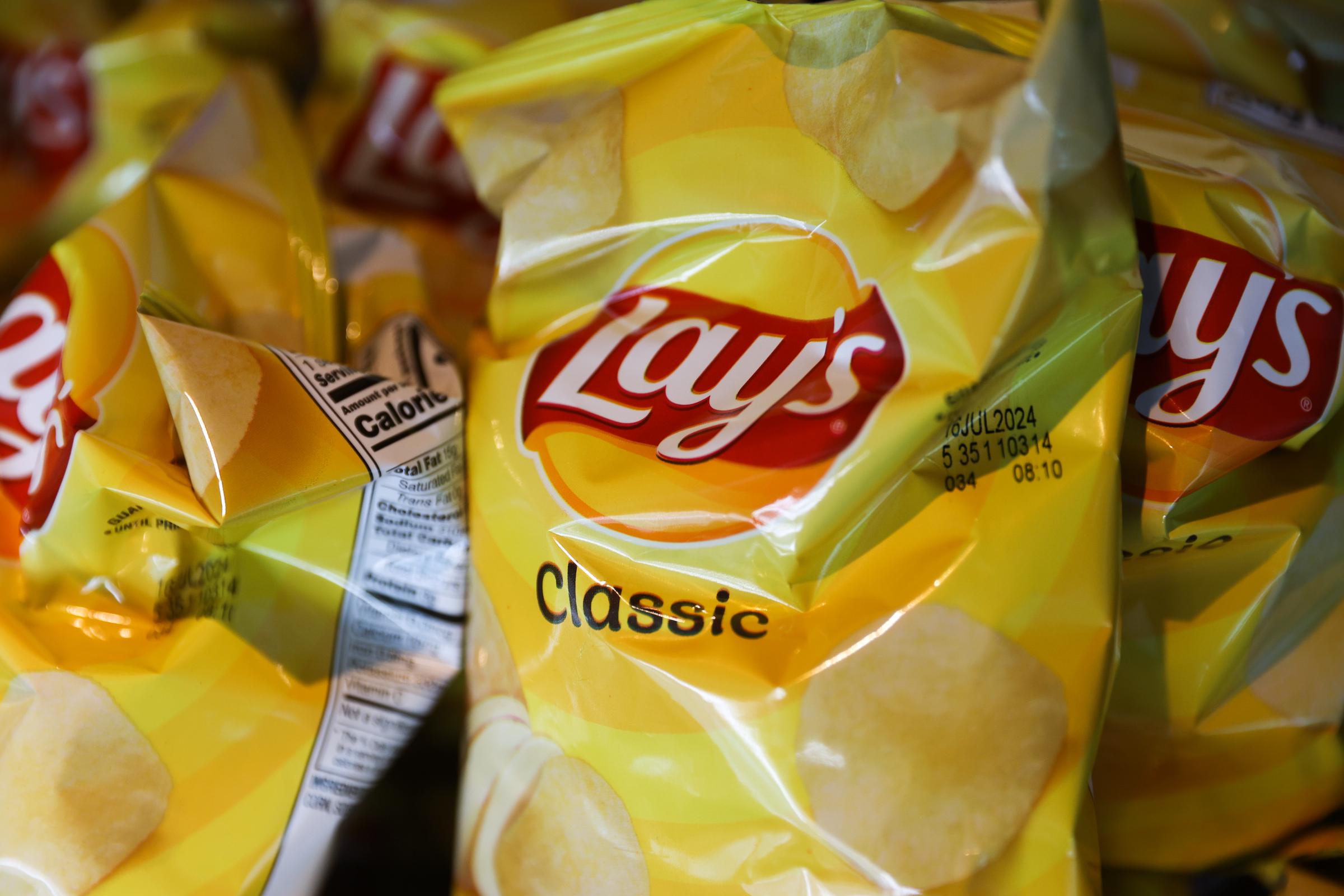
A photo of Lay’s Classic chips taken in Miami, Florida on May 2, 2024 | Source: Getty Images
A representative for Frito-Lay further confirmed the details of the recall in a statement to Newsweek, reiterating the company’s commitment to transparency and consumer safety.
In their comment, the representative also clarified that no other Lay’s products — including flavors, sizes, or variety packs — are involved in the recall.
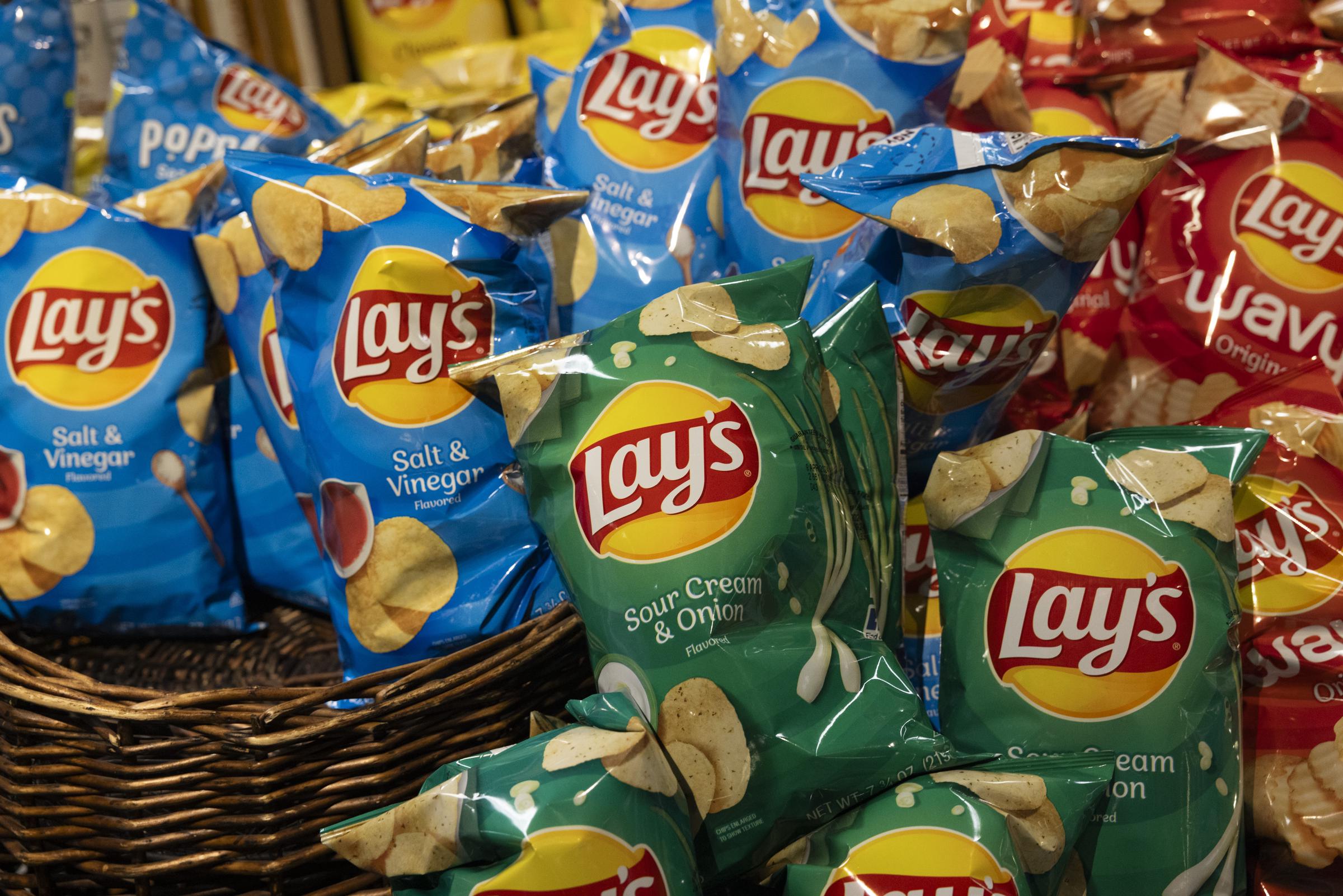
A photo showing a variety of Lay’s chips in a supermarket in Latham, New York on February 2, 2024 | Source: Getty Images
Additionally, affected customers can reach out to Frito-Lay’s Consumer Relations team at 1-800-352-4477 during regular business hours for assistance.
Two days after Frito-Lay announced the recall, the FDA re-published the same details on their official website to further amplify the message and ensure public awareness and safety.
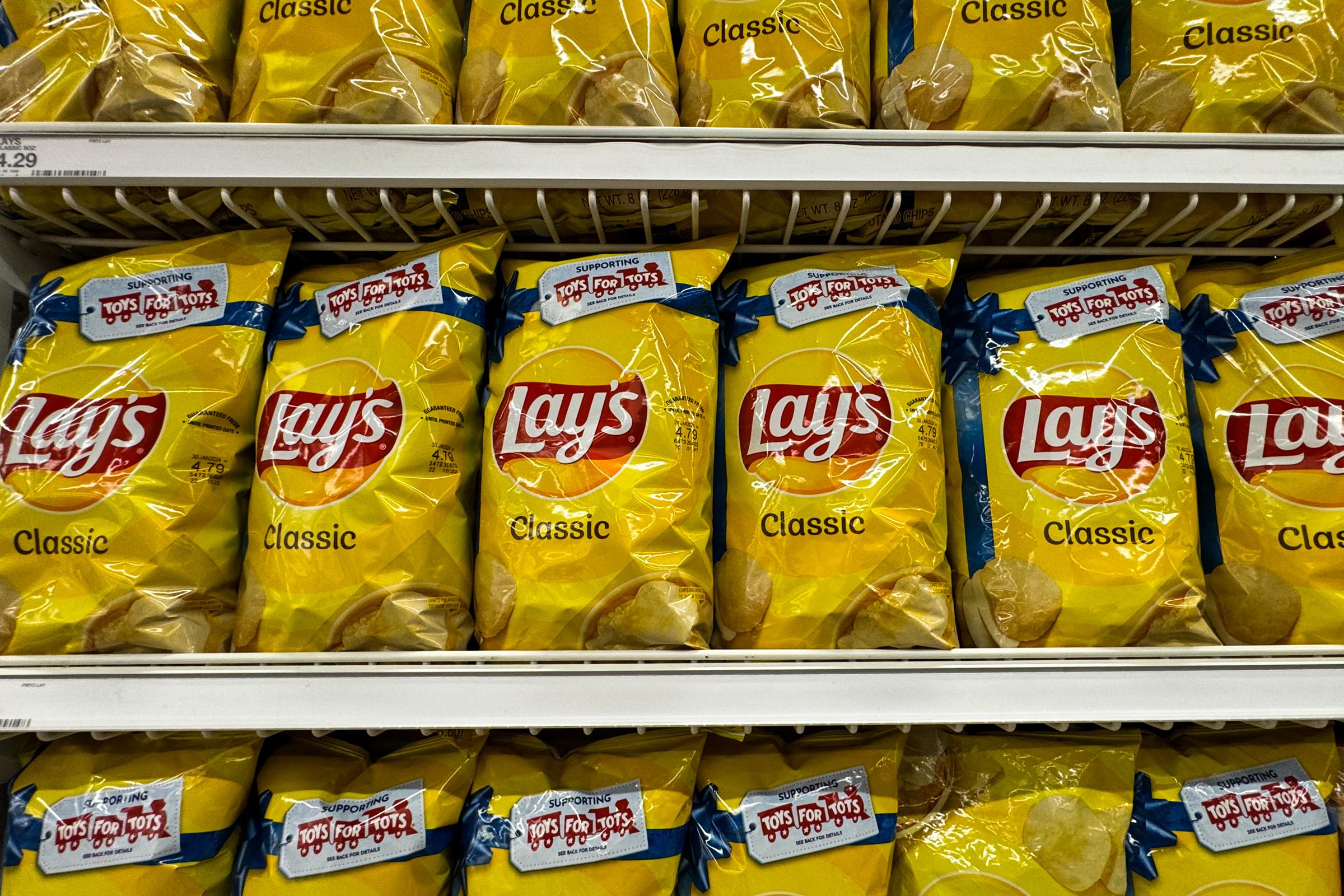
Bags of Lay’s Classic chips in a grocery store in Las Vegas, Nevada on November 17, 2023 | Source: Getty Images
While cow’s milk is the most frequent trigger, milk from other mammals, such as sheep, goats, and buffalo, can also cause allergic reactions.
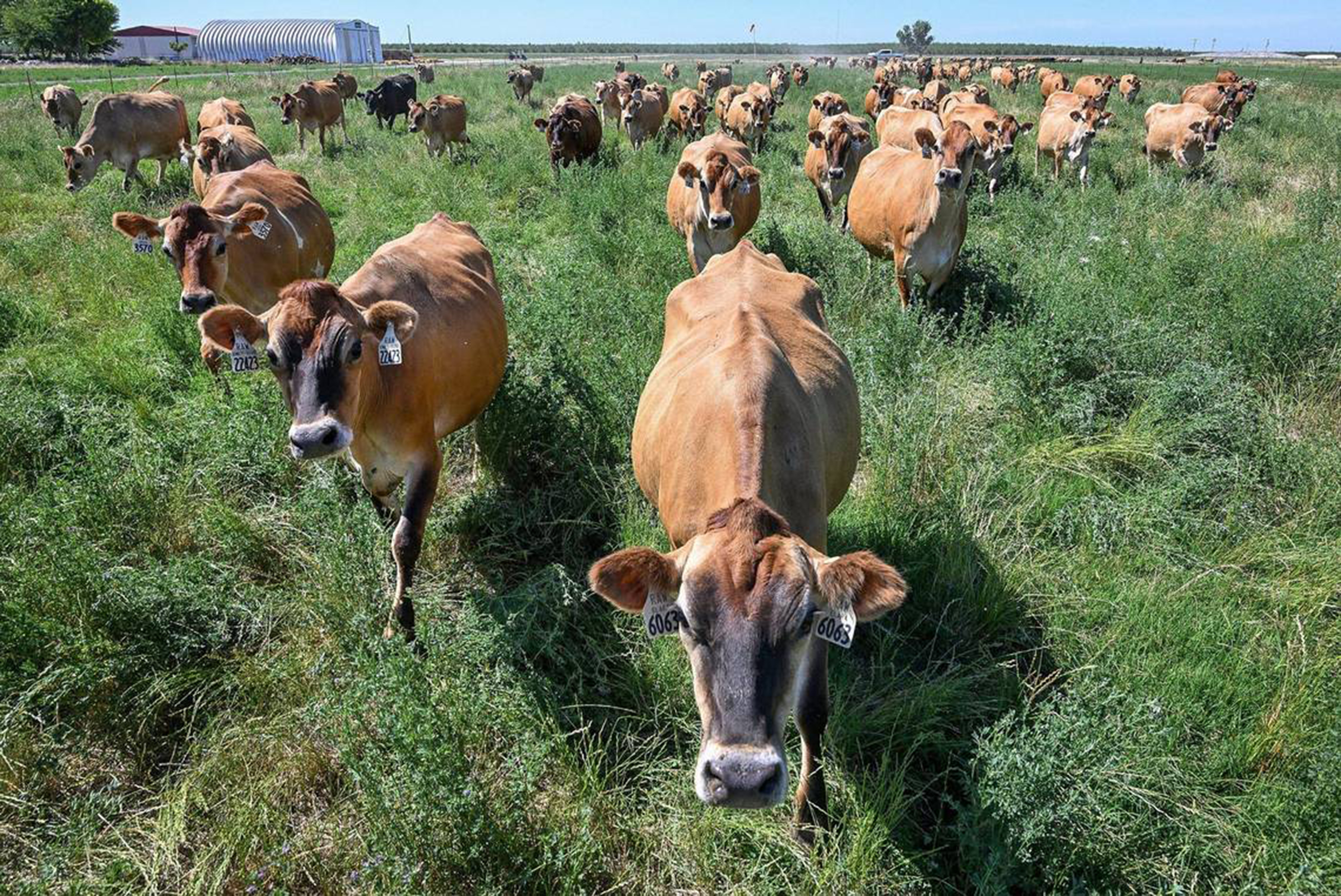
Jersey cows in a field located in Fresno, California on June 14, 2024 | Source: Getty Images
These reactions occur because the immune system mistakenly identifies specific proteins in milk — such as casein, found in the curd, or whey, found in the liquid portion — as harmful. This leads to the release of histamines and other chemicals, causing a range of symptoms.
Symptoms of a milk allergy can appear within minutes or take hours to develop after consuming milk or milk-containing products. Immediate reactions might include hives, swelling of the lips or throat, wheezing, coughing, vomiting, and/or an itchy or tingling sensation around the mouth.
Delayed symptoms, on the other hand, can include digestive issues such as loose stools, abdominal cramps, or colic in infants, as well as respiratory symptoms like a runny nose or watery eyes.
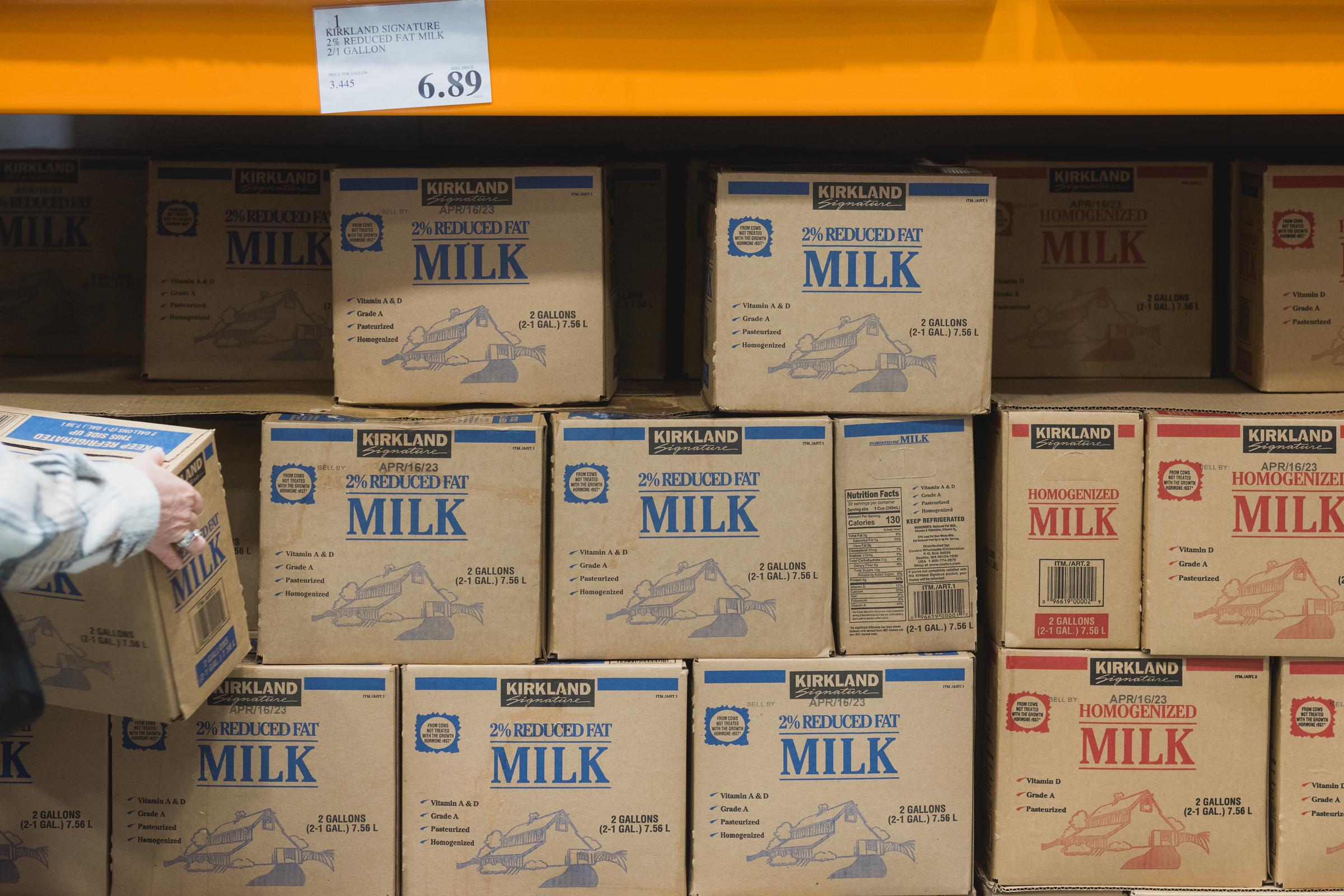
Boxes of milk at a Costco Wholesale store in Kyle, Texas on March 30, 2023 | Source: Getty Images
In severe cases, milk allergies can lead to anaphylaxis — a life-threatening reaction that narrows the airways, making breathing difficult. Anaphylaxis symptoms can include a swollen throat, a significant drop in blood pressure, facial flushing, and even shock.
When unpacking adverse reactions to milk, it is important to distinguish a true milk allergy from lactose intolerance or milk protein intolerance, as they are fundamentally different conditions.
Unlike a milk allergy, which involves the immune system, lactose intolerance is a digestive issue caused by the body’s inability to break down lactose, a sugar found in milk. Symptoms of lactose intolerance, such as bloating, gas, and diarrhea, are typically less severe and do not pose the same risks as a milk allergy.
Moreover, milk allergies are most common in young children, as their digestive systems are still developing. Fortunately, many children outgrow the allergy as they age, though some carry it into adulthood.
This can be challenging, as milk proteins are often hidden in processed foods, baked goods, candies, and even non-dairy-labeled items. However, key terms like “casein,” “whey,” or “lact-” (such as lactose or lactate) on food labels signal the presence of milk proteins.
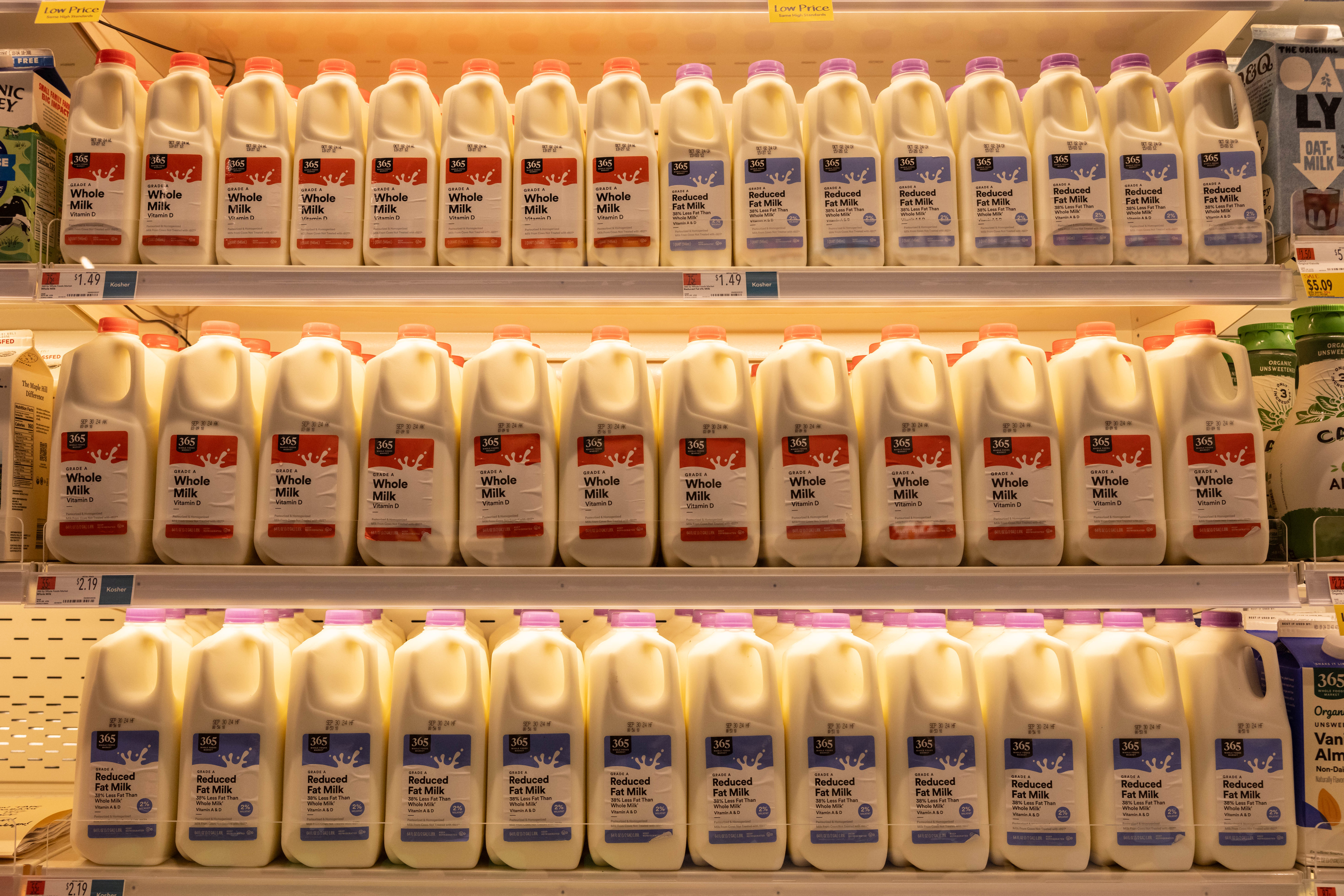
Bottles of milk for sale in a Whole Foods Market Daily Shop in New York on September 17, 2024 | Source: Getty Images
Parents and caregivers of children with milk allergies need to be particularly vigilant. For infants, breastfeeding or hypoallergenic formulas are recommended, as traditional milk-based formulas may trigger reactions.
If breastfeeding, mothers may need to eliminate dairy from their own diets if cow’s milk proteins pass through breast milk and cause symptoms in their babies.
For those at risk of severe reactions, carrying emergency epinephrine, such as an EpiPen, is essential. Wearing a medical alert bracelet or necklace can also help inform others of the allergy in emergencies.
Thus, consulting a healthcare provider or dietitian can help individuals plan balanced meals and consider supplements to fill these nutritional gaps.


